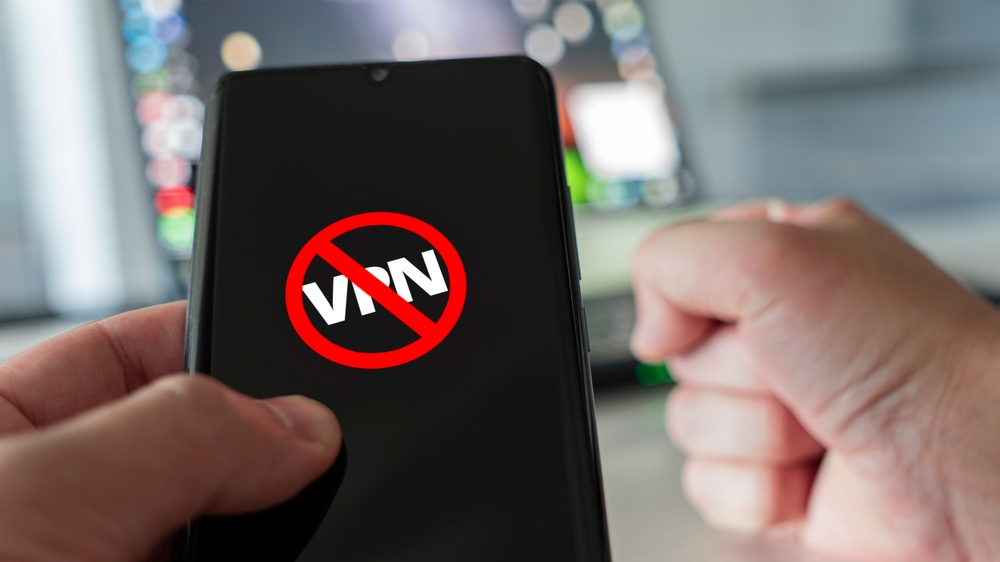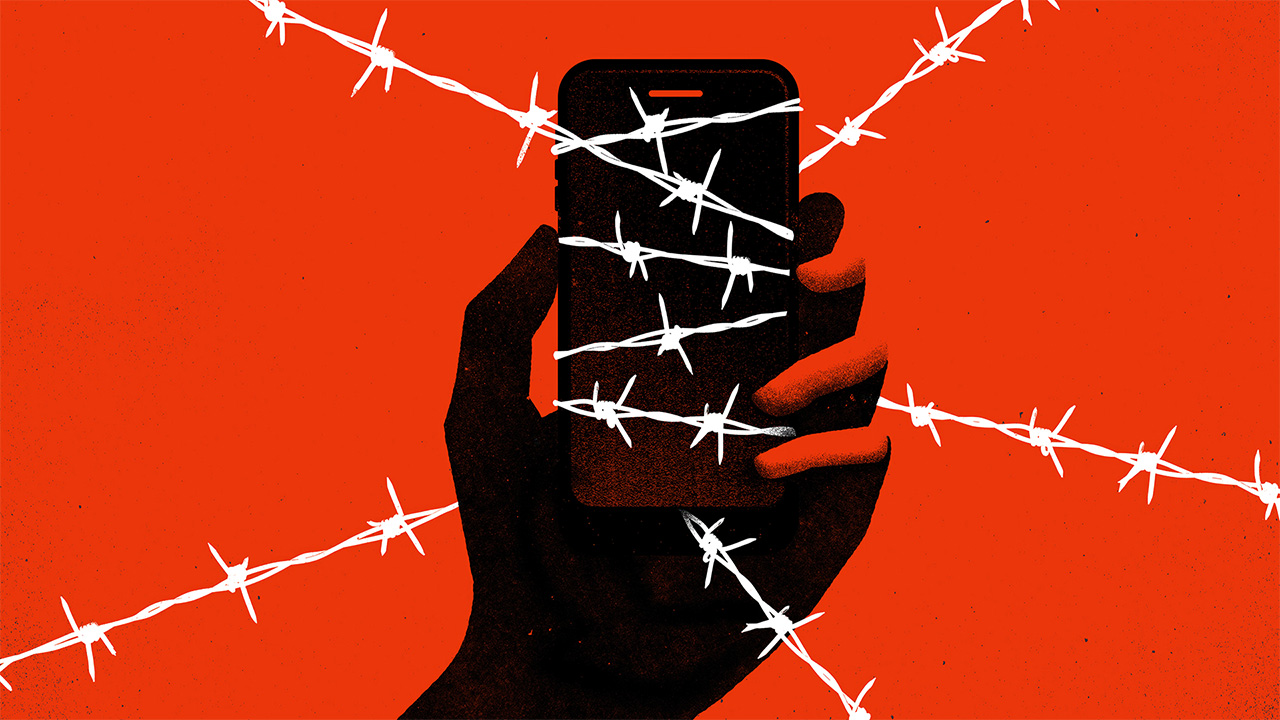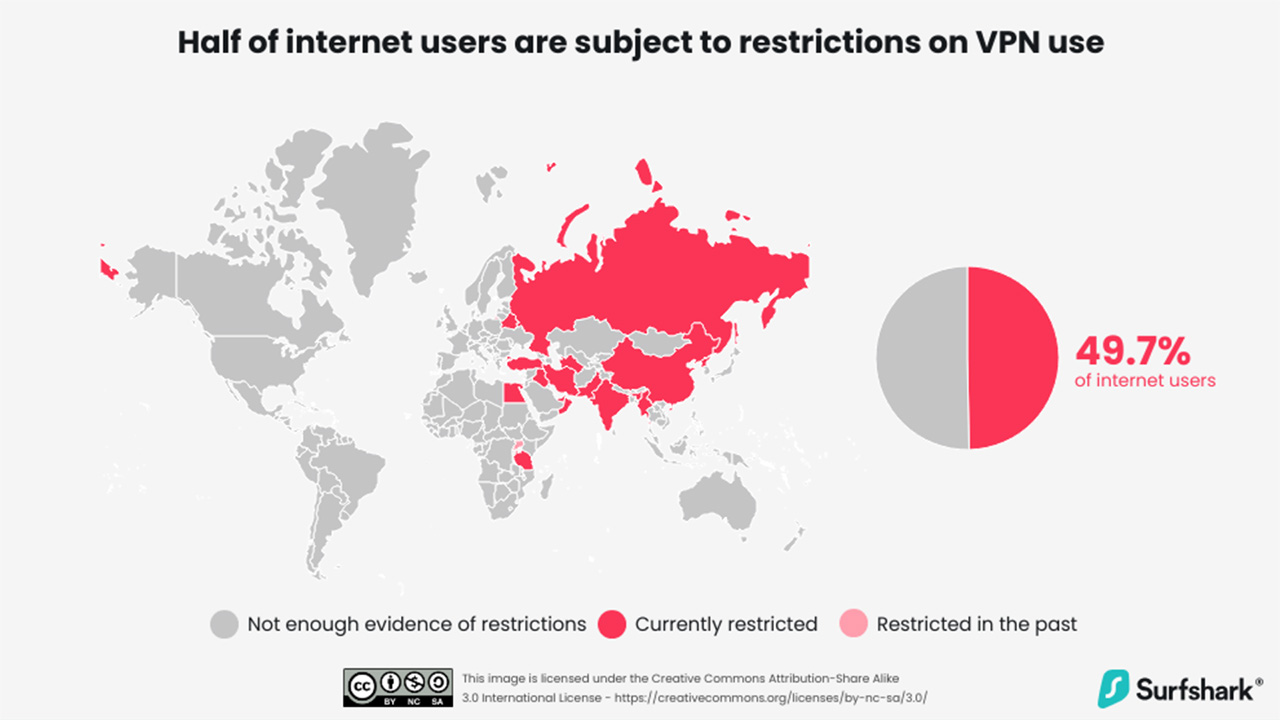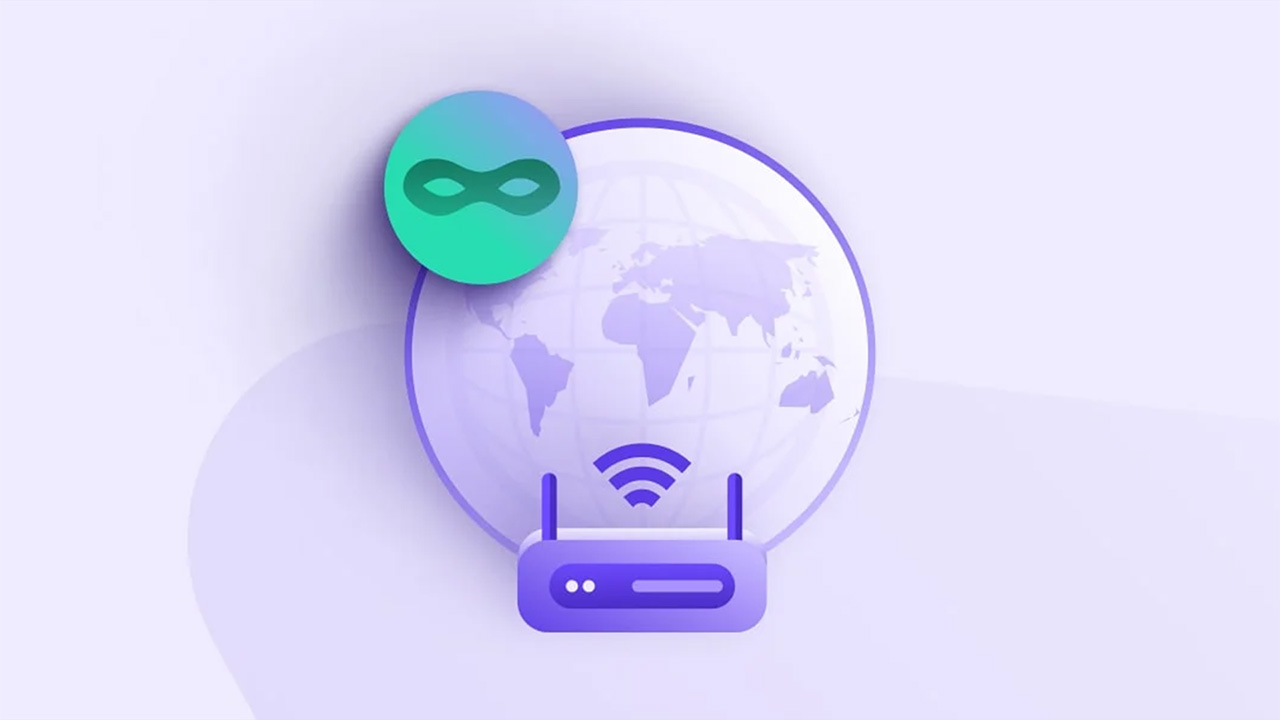It is illegal to use a VPN in these countries – and potentially dangerous to use them in others
Plenty of countries restrict VPN usage – here are the worst offenders

Largely, VPNs are legal tools which help us safely navigate the internet, protect our privacy, and encrypt our data.
But not every country wants its citizens using one of the best VPNs. They have been made illegal in some countries and are heavily restricted in others.
Internet censorship is a serious problem facing billions around the world and restricting VPNs is a way of ensuring people don't have access to a free and open internet.
In 2024, 4.8 billion people were impacted by internet censorship and 24 internet restrictions have been imposed in the first half of 2025.
If you find yourself needing to use a VPN in one of these countries, it is crucial the provider has a fully audited no-logs policy and strong levels of encryption and security.
VPN obfuscation is a must. This disguises your VPN traffic and makes it harder to detect. NordWhisper (NordVPN), Stealth (Proton VPN), and Chameleon (VyprVPN) are a few examples of obfuscated protocols.
For extra security, route your traffic through two VPN servers rather than one. Double VPN (NordVPN), Secure Core (Proton VPN), and Dynamic MultiHop (Surfshark) are examples of double VPN features.
Why are VPNs banned in some countries?
Using VPNs is legal in many countries, including the UK, USA, Canada, Australia, and Japan.
However, some countries prohibit VPNs to suppress dissenting views and control internet access. Here are a few other reasons why VPNs are banned:
Government censorship: Sometimes, the government doesn’t want its citizens to access certain content, social media platforms, or websites. VPNs can help bypass these restrictions, so the government bans them altogether.
National security concerns: Since VPNs can be used for anonymous and encrypted communication, governments often consider them a threat to national security and ban them to prevent terrorism.
Surveillance and control: VPNs make it difficult for the government to control and monitor online activities since they cannot trace activity back to the user. So, VPNs are often banned to have more control over citizen’s online communications and usage.

Countries where VPNs are illegal
These countries have the strictest VPN laws and the tools are illegal.
North Korea
North Korea is known for its authoritarian regime and strict internet regulations.
This is no different when it comes to VPNs. The government monitors internet access and prohibits VPN use in the country.
However, the irony is that VPN restriction is probably not a major concern for the citizens in North Korea, as most of them don’t have internet access to begin with.
If you're one of the lucky minority to have a computer, you’re limited to their national intranet called Kwangmyong.
It is unknown what the punishment is for being caught with a VPN in North Korea.
Turkmenistan
Turkmenistan is another incredibly isolated country. Like North Korea, it has blocked all access to foreign media. Its state-run ISP, Turkmenet, detects and blocks all proxies and VPNs, having banned them in 2015.
All online activity is heavily monitored and largely discouraged. You will face an unspecified fine if caught using a VPN in Turkmenistan, with potential further repercussions.
Belarus
VPNs are illegal in Belarus and were banned in 2015. The Tor Network was also blocked in 2016.
The country has imposed restrictions on messaging apps like Signal and Telegram to restrict free speech, suppress dissent, and prevent the spreading of anti-governmental data.
Like Turkmenistan, being caught using a VPN in Belarus will result in an unspecified fine.
However, VPNs do appear to work in the country, with Reddit users reportedly having success with most major VPN providers.
Iraq
In Iraq, VPN services have been blocked for all since 2014. Preventing the spread of terrorism is the primary reason given but suppressing protests and civil unrest has also been cited.
Plus, the government wants to curb the spread of extremist online content. Although Iraq’s censorship measures are not as strict as in China or North Korea (due to the lack of infrastructure), you can end up in jail for a year if you're found using a VPN for any reason.

Countries where VPNs are heavily restricted
This is a longer, and more varied, list. In some cases, VPNs are banned in all but name although technically remain legal.
Most countries restrict the use of personal VPNs and may only allow state-approved VPN services.
Iran
Unpermitted VPN usage has been banned in Iran since 2013. Only government-approved VPNs are legal, with the services being closely monitored.
Blocks were initially introduced to "promote local platforms" and have remained in place ever since.
Despite this, VPN usage is common in Iran and a report found over 80% of Iranians relied on one to bypass internet restrictions.
Oman
VPNs can only be used by organizations and institutions who have received approval from Oman's Telecommunications Regulatory Authority (TRA).
This has been in place since 2010 and all approved VPNs must keep usage logs. Personal VPN use is illegal and Oman has also forbidden encryption on communications.
Top10VPN.com has reported that punishment for personal VPN use can be a fine of $1,300.
China
The Chinese government has strict rules in place for using a VPN and all services must receive government approval before beginning operations. However, it’s not officially illegal to use a VPN in China.
Using a VPN without authorization can reportedly see you receive fines of up to $2,200.
The famous "Great Firewall of China" can be notoriously difficult for VPNs to bypass and many can be detected. The best China VPNs should work in the country, but it's a constant game of cat and mouse.
If you're heading to China for business or pleasure, you should sign up to a VPN before you step on the plane. This is because many foreign VPN websites are blocked, and their apps aren't likely to be found on your app store.

Russia
VPNs are legal in Russia, but only those approved by the government.
Many popular VPNs are banned in Russia and the Kremlin passed restrictive VPN laws in July 2025. Risks are growing for VPN users in Russia and a future all out ban would not be surprising.
In December 2024, Russia disrupted the internet across several regions and VPNs appeared unable to bypass the block. This was rumoured to be a test of Russia's "sovereign internet" infastructure.
If you plan on using one of the best Russia VPNs, sign up and install your apps before landing in the country.
United Arab Emirates (UAE)
As with most countries listed, only government-approved VPNs are legal in the UAE.
Strict regulations were imposed in 2012 to prevent or block "offensive" content and to prevent the use of Voice over Internet Protocol (VoIP) services like WhatsApp, Skype, and Facebook.
Corporate VPNs appear to face fewer restrictions. If you're found to have committed a crime using a VPN, the penalty is imprisonment or fines of between $41,000 and $136,000.
If you're travelling anywhere in the UAE, you'll want to subscribe to one of the best UAE VPNs.
Myanmar
Myanmar's VPN restrictions are one of the newest on this list. A new security law was introduced in January 2025 which saw an attack on VPNs.
"Unauthorized VPN installation" can now result in six months in prison or fines of up to $4,750.
A VPN ban was imposed in 2024 and there have been reports of phone inspections and fines for having VPNs installed. If you have an Android, Proton VPN allows you to disguise your VPN app – this is one of its many anti-censorship features.
Turkey
VPNs have been under attack in Turkey since 2016, when 10 providers and Tor was banned. Further bans occurred in 2023.
March 2025 saw a huge VPN usage spike in the country amid political protests and a social media crackdown.
Since President Erdogan's election in 2014, censorship, internet shutdowns, and restrictions have been common place in Turkey.

Pakistan
The end of 2024 and beginning of 2025 saw Pakistan's government make numerous attempts to ban VPNs.
The Pakistan Telecommunication Authority (PTA) has slightly backed down from its all-out-attack on VPNs following legal intervention.
However using a VPN for business requires a licence and the future of personal VPNs is very unclear.
India
VPNs are legal in India. But a controversial 2022 data law required all providers with physical servers in the country to record and store data about their users.
This goes against the fundamental values of all reputable VPN providers and led to many major providers – including ExpressVPN and NordVPN – withdrawing from the country.
Numerous VPNs have also been removed from Indian Apple App and Google Play stores.
There have been reports of police taking action against VPNs in the contested regions of Kashmir and Jammu. People have been questioned and had their phones searched over suspicions of a "misuse of social media."
How to bypass VPN restrictions
This is not an exhaustive list of countries and many more operate forms of VPN and internet restrictions.
Subscribing to one of the most secure VPNs will ensure your data is protected. Look for a VPN service that offers double VPN, a strong no-logs policy, obfuscated servers and protocols, and has a rock solid kill switch.
Some leading VPNs have dedicated anti-censorship features, but in our experience, Proton VPN stands above the rest. Guest mode, Stealth protocol, Secure Core, and Proton VPN Free – one of the best free VPNs – make it a great choice for anyone combating internet and VPN restrictions.

When visiting a country with VPN or internet restrictions, it's vital your VPN is downloaded, installed, and working before you leave home.
Familiarise yourself with local laws and the punishments (if any) for being caught using a VPN.
Proton VPN: The best anti-censorship VPN
Proton VPN fights for a free and open internet, with privacy and anti-censorship features at its core. Secure Core, Stealth protocol, and Proton VPN Free are just some of these features and it takes the fight to VPN and internet restrictions.
It's also the fastest VPN we've tested, great for streaming, and has a fully audited no-logs policy. The 2-year deal works out as $3.59 per month ($86.11 up front) and comes with a 30-day money-back guarantee.
Bottom line
The legality of using a VPN varies depending on the country, and although most of us use VPNs for privacy and security purposes, there are potential consequences and risks associated with their legality.
All in all, we strongly recommend you use government-compliant VPNs to avoid fines and other penalties, but if you're keen on getting unrestricted access to the internet, using a reliable VPN should be your go-to choice.
We test and review VPN services in the context of legal recreational uses. For example: 1. Accessing a service from another country (subject to the terms and conditions of that service). 2. Protecting your online security and strengthening your online privacy when abroad. We do not support or condone the illegal or malicious use of VPN services. Consuming pirated content that is paid-for is neither endorsed nor approved by Future Publishing.

Krishi is a VPN writer covering buying guides, how-to's, and other cybersecurity content here at Tom's Guide. His expertise lies in reviewing products and software, from VPNs, online browsers, and antivirus solutions to smartphones and laptops. As a tech fanatic, Krishi also loves writing about the latest happenings in the world of cybersecurity, AI, and software.
- George PhillipsStaff Writer
You must confirm your public display name before commenting
Please logout and then login again, you will then be prompted to enter your display name.
 Club Benefits
Club Benefits






